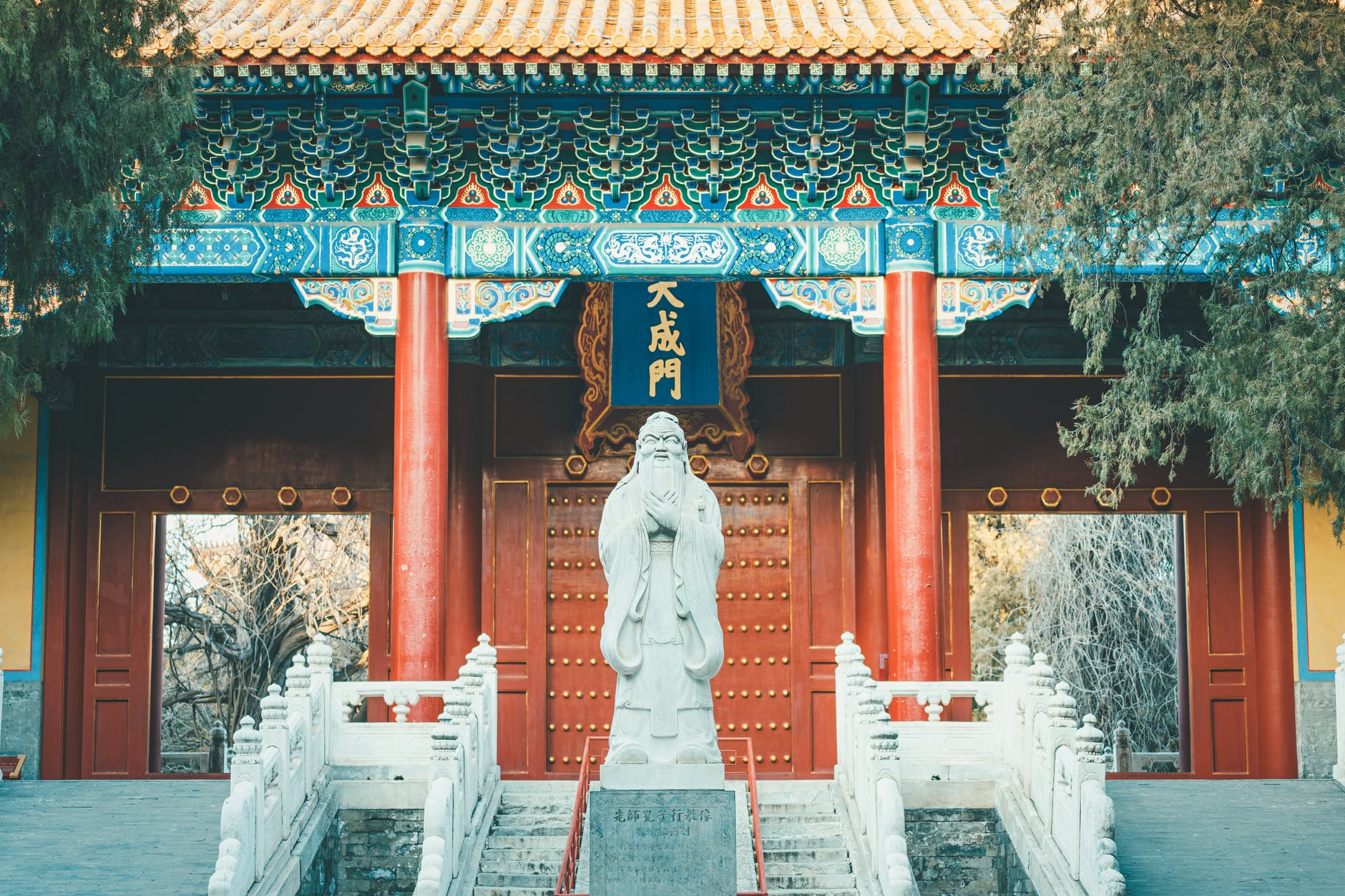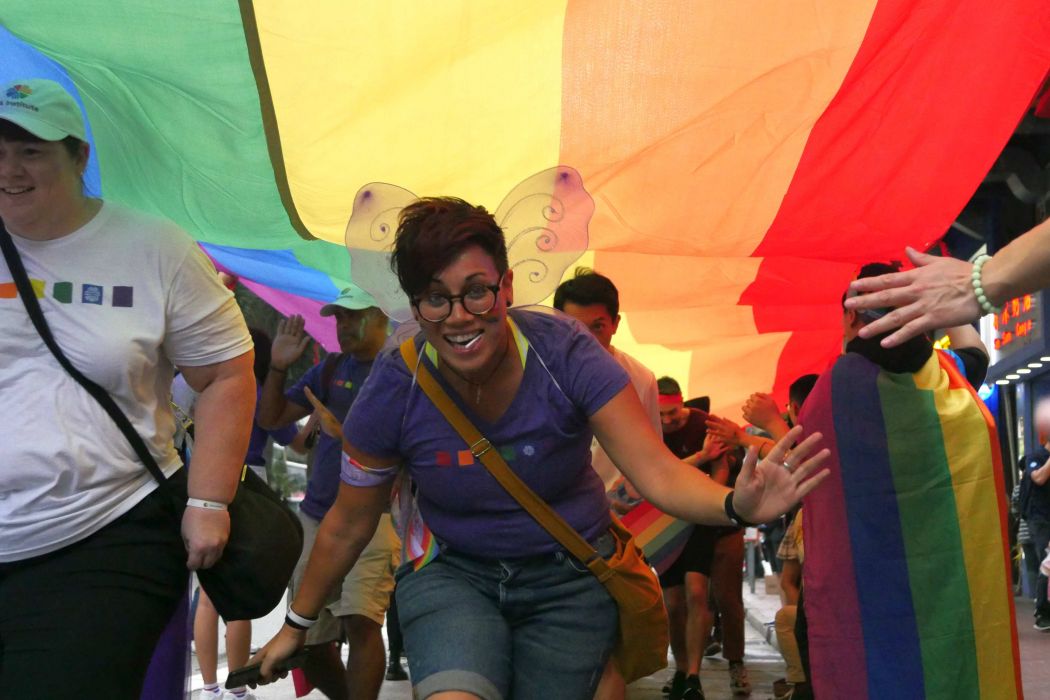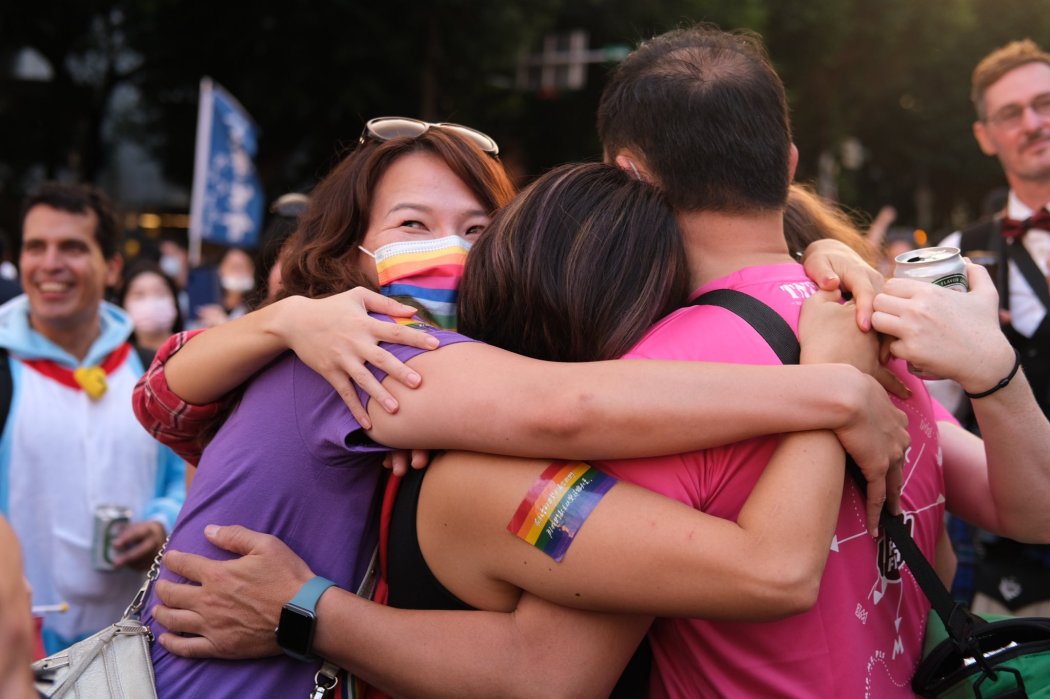By Jerome Yau
Marriage equality was once unthinkable, but the world has seen remarkable progress in the past two decades. The number of places that recognise same-sex marriage grew from zero to 31, and the advancement did not lead to the apocalypse – life went on as usual.

It is no surprise that the topic of equal marriage elicits strong and emotive views in our society. Yet, these views are often based on fear and misunderstanding. More importantly, culture and religion are not trump cards when it comes to issues that involve the treatment of a minority group. After all, discrimination is unethical and morally wrong.
It is often said that the traditional definition of marriage refers to the union of one man and one woman at the exclusion of others. Does this definition hold water in Hong Kong’s context? Chinese customary marriages were recognised by Hong Kong law until October 1971. In other words, polygamous unions were once legal and celebrated until five decades ago, and polygamy was commonplace in pre-modern China.
Speaking of customs and traditions, naysayers argue that Confucian values are not compatible with same-sex marriage because filial piety, a central value of Confucianism, requires the perpetuation of the patrilineal blood line, and gay couples do not procreate. If the logic behind this argument holds, are we going to annul childless straight marriages? What about the teaching that a wife has to be subservient to her husband? Should concubinage be made legal again?

Patriarchy and polygamy are antithetical to today’s values, which emphasise equal partnership and monogamy. In fact, defining marriage is not a straightforward task, and anthropologists have proposed competing definitions. However, it is fair to say that in the contemporary sense, marriage is a lifetime contractual relationship that serves many purposes. It is also a signifier of love and mutual support between two individuals. In short, marriage is a social unit that produces salutary effects on society.
This brings us to the crux of the issue – is it possible to bridge the gulf between traditional culture and marriage equality? The answer is in the affirmative.
In the case of Confucianism, the foundational virtue is “ren”, or humanity or benevolence. Instead of fixating on reproduction, Sinologist Sam Crane opined that “what is important is that people perform humanity-creating social responsibilities.”
This approach aligns with the contemporary understanding of marriage – a union of two loving persons. These days, we say “no” to patriarchy and polygamy, and married couples are seen as equal partners in a union in pursuit of conjugal happiness rather than patrilineality.

In the case of religion, people are free to practice their faith but that doesn’t mean their religious belief can dictate policymaking. If Hong Kong were to have marriage equality, exemptions could be extended to religious bodies so that they wouldn’t be forced to perform same-sex marriage. This way, a proper balance could be achieved to respect religious freedom on one hand and equality on the other.
Aside from philosophical arguments, what do real-world examples tell us? Argentina, Brazil, Chile, Ireland and Spain are countries with Roman Catholicism as the dominant religion. Yet, they have no problem with same-sex marriage despite the fact that the Catholic Church has had considerable influence in shaping society in these countries.
In Asia, Taiwan and Hong Kong both share the same Chinese cultural heritage. And same-sex marriage has been legal in Taiwan since 2019. Most telling is that according to a 2021 government survey, Taiwanese people’s acceptance of same-sex marriage had seen a significant increase, from 37.4 per cent in 2018 to 60.4 per cent in 2021.

Culturally speaking, there is no reason to believe that Hong Kong would be radically different in terms of social acceptance of same-sex marriage. In fact, roughly half of Hong Kong’s population already indicated that they had no problem with marriage equality in 2020, and the same CUHK survey also found that only 23 per cent were firmly against it.
More interesting is that Thailand, one of the largest Buddhist nations in the world, is on its way to legalising same-sex unions. Lawmakers recently passed at first reading four different bills covering civil partnership and equal marriage, and if one of the bills becomes laws, the country will become the second place in Asia to recognise same-sex marriages.
In the United States, support for same-sex marriage has seen an upward trend over the past decade. For example, a June 2021 Gallup poll found that 70 per cent of Americans supported same-sex marriage.
This figure represented an increase of 10 percentage points since the US Supreme Court ruled in favour of same-sex marriage in 2015. More remarkable is that for the first time, a majority of Republicans – 55 per cent – said that they supported same-sex marriage.

Numbers do not lie; a national survey carried out by the Public Religion Research Institute in 2020 suggested that a majority in almost every major religious group in America supported same-sex marriage, including 90 per cent of religiously unaffiliated Americans, 79 per cent of white mainline Protestants, 78 per cent of Hispanic Catholics, 72 per cent of members of non-Christian religious groups, 68 per cent of Hispanic Protestants, 67 per cent of white Catholics, 57 per cent of Black Protestants and 56 per cent of members of other Christian groups.
The only hold outs were white evangelical Protestants – 63 per cent opposed marriage equality. These numbers indicated that the faithful in the US had embraced equal marriage.
There is no denying that modern concepts of human sexuality and sexual orientation are Western in origin. And it is without question that in Hong Kong, as in much of the world, our understandings of sexuality come from Western colonisation. As Taiwanese scholar Po-Han Lee put it, “the traditional family values asserted by homophobic groups are actually derived from Judeo-Christian rather than Confucian teachings.”
Culture is never static – it constantly evolves with the times. In the grand scheme of things, there is nothing radical about marriage equality. The inclusion of same-sex couples in the institution of marriage not only reaffirms the importance of love but also solidifies the value of commitment in a matrimony. In the end, it is no-brainer that promoting stable and loving relationships – gay or straight – is beneficial to the wider community.
Jerome Yau is the co-founder of Hong Kong Marriage Equality.
Support HKFP | Policies & Ethics | Error/typo? | Contact Us | Newsletter | Transparency & Annual Report | Apps
Help safeguard press freedom & keep HKFP free for all readers by supporting our team

LATEST FROM HKFP
HKFP has an impartial stance, transparent funding, and balanced coverage guided by an Ethics Code and Corrections Policy.
Support press freedom & help us surpass 1,000 monthly Patrons: 100% independent, governed by an ethics code & not-for-profit.










